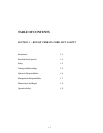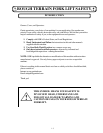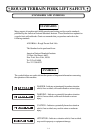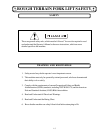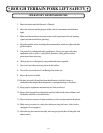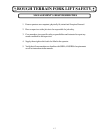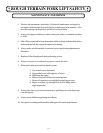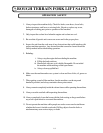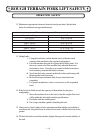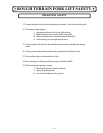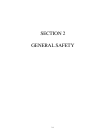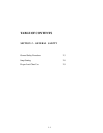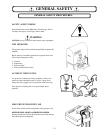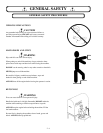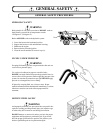
ROUGH TERRAIN FORK LIFT SAFETY
1 - 10
OPERATION SAFETY
ecnatsiDhcaorppAefaSmuminiM
egatloVeniLrewoPecnaraelCderiuqeR
Vk05ot0)m00.3(.tf01
Vk002ot05)m06.4(.tf51
Vk053ot002)m01.6(.tf02
Vk005ot053)m26.7(.tf52
Vk057ot005)m76.01(.tf53
Vk0001ot057)m27.31(.tf54
13. Lifting Loads:
i. Using the load chart, confirm that the load is within the rated
capacity of the machine for the required configuration.
ii. Level the machine using the level gauge before lifting loads. Use
the sway control to level the machine only when the boom is at
horizontal or lower. Using the sway control with the boom above
horizontal may cause the machine to overturn.
iii. Verify that the load is secured on the forks before performing a lift.
Rearrange the load if necessary.
iv. Before lowering a maximum load, always retract the boom
completely.
v. Use proper attachments, such as a truss boom, to lift suspended
loads.
14. If the load to be lifted exceeds the capacity of the machine for the given
configuration:
i. Move the machine closer to the load so that the weight of the load
will be within the allowable load chart specifications.
ii. Divide the load into smaller pieces.
iii. Get a larger machine capable of handling the load.
15. Always move a load so that you have maximum machine stability and visibility is
not obstructed. Keep the boom at or below horizontal, with the load close to the
ground.
16. Tilt the forks back towards the machine slightly during travel to ensure stability of
the load.
12. Maintain an appropriate clearance from electrical power lines. See the chart
below for minimum safe approach distances.



